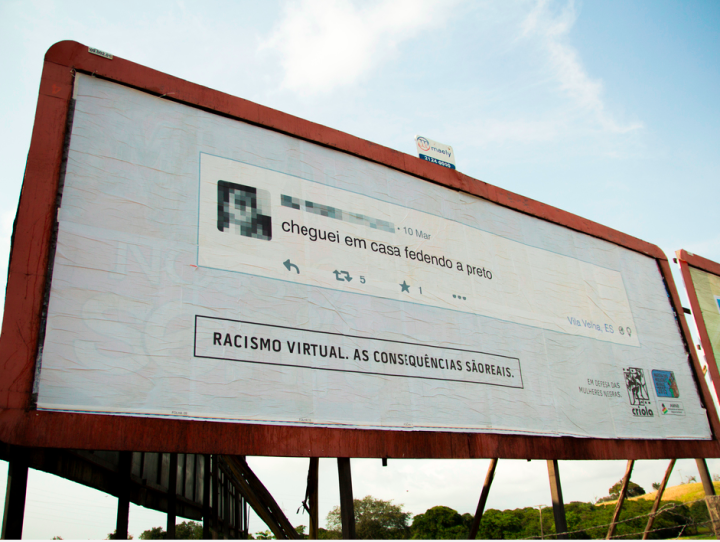

“Those people [who post abuse online] think they can sit in the comfort of their homes and do whatever they want on the Internet,” said Jurema Werneck, the founder of the anti-racism group behind the campaign, “We don’t let that happen. They can’t hide from us, we will find them.” Using geotagging technology to determine where the offenders live, the group is buying billboard space throughout various neighborhoods in the South American country, then broadcasting the vitriol to elicit a collective shudder from the community at large (names and pictures are blurred out before posting).
With the laudable mission of enabling “Afro-Brazilian women, teenagers and girls to become agents for change in the struggle against racism, sexism, and homophobia, and work for the creation of better conditions of life for the Black population in Brazilian society,” the Rio de Janeiro-based group has certainly evolved with the times, highlighting the more insidious aspects of social media for their own purposes.
“We wanted to provoke reflection,” the group states on its website. “Does a comment on the Internet cause less damage than a direct offense? For those who comment, maybe. But for those who suffer it, the prejudice is the same.”
The campaign, which has been active since the summer, was catalyzed by a slew of racist comments hurled against popular black weather presenter Maria Julia Coutinho, after the news program Nacional Journal posted her photo on its Facebook page. Thousands quickly jumped to her defense, but even so, many were alarmed by the viciousness of some of the posts. This campaign, Werneck and his team hope, will at least encourage people to think before they take to the Internet with their cruelty.
Of course, putting Facebook and Twitter posts on billboards raises some serious privacy issues, and others have noted that nearly everyone has experienced some sort of abuse online. And while the Web may never be a truly safe space for everyone, here’s hoping that we make strides toward making it a civil space.


